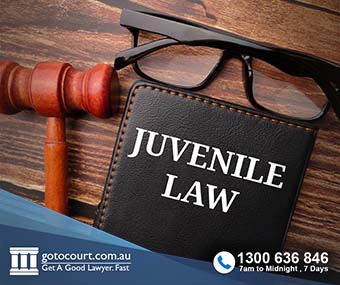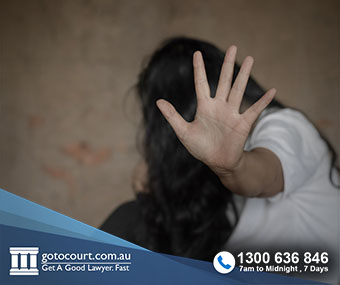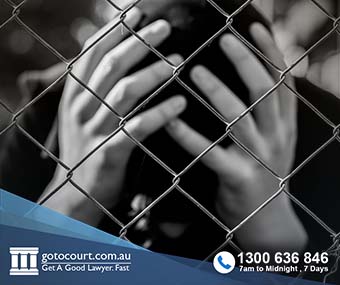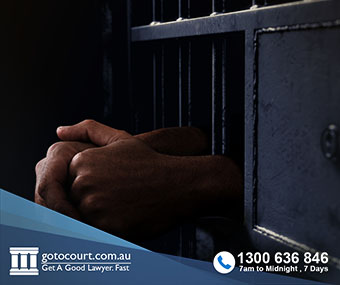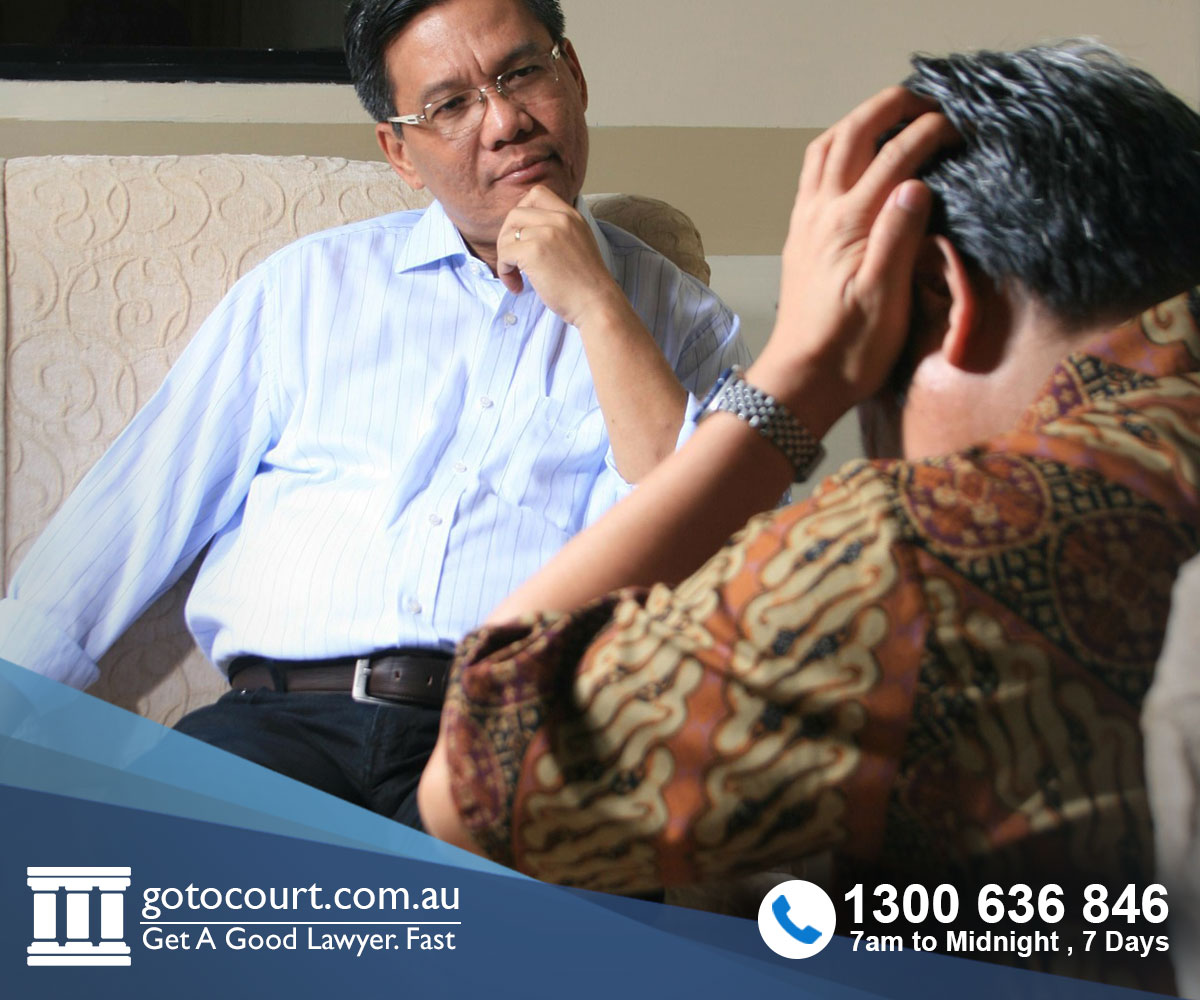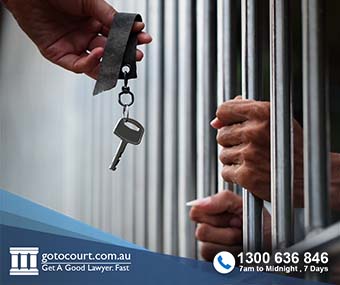Call our lawyers
now
or,
have our lawyers
call you
Suspended Sentences (Qld)
Updated on Jan 31, 2023 • 9 min read • 601 views • Copy Link
Suspended Sentences (Qld)
When an offender pleads guilty or is found guilty of a crime, he or she will proceed to be sentenced by the court. If the court imposes a term of imprisonment, it may choose to suspend that term either wholly or partially. When a term of imprisonment is suspended, the offender is free to live in the community provided they comply with the conditions of the suspended sentence. Offenders on suspended sentences must not commit any further offences punishable by imprisonment for the operational period of the suspended sentence.
How do suspended sentences work?
Suspended sentences are governed by Part 8 of the Penalties and Sentencing Act (Qld). A term of imprisonment may be suspended when the term is five years or less. It may be partly suspended so that the offender serves part of the term in prison but is then conditionally released. Alternatively, a sentence may be wholly suspended so that the offender does not serve any of the terms in prison unless the conditions of the suspended sentence are breached.
The operational period is when the suspended sentence is in effect. During this time, the offender is given the opportunity to live in the community and avoid serving time in prison, provided they comply with the conditions set by the decision maker. The conditions of a suspended sentence may include requirements such as reporting to a probation officer, attending rehabilitation programs or refraining from certain activities. If the offender fails to meet these conditions, the suspended sentence may be revoked, and they may be required to serve the full term of imprisonment. The decision to impose a suspended sentence is made by a judge, magistrate, or another decision-maker, and is typically used as an alternative to imprisonment for less serious offences or as a way to provide an opportunity for the offender to make positive changes in their life while under supervision. The goal of a suspended sentence is to provide a balance between punishment and rehabilitation, to help the offender become a productive member of society.
A partially suspended sentence means the offender serves some of the operational period in custody, following which the term is suspended, and the offender lives at home for the operational period. The offender is free to work and mix with the community and continue with their everyday life. There may be conditions placed on a suspended sentence, such as the offender undergoing counselling, drug rehabilitation, abstaining from alcohol or reporting to the police regularly. Depending on these conditions, the offender may or may not be able to travel during the operational period of the sentence.
When will Queensland courts impose suspended sentences?
The purposes of any sentencing order are set out in Section 9 of the Penalties and Sentences Act. A sentence can be imposed to:
- Punish the offender in a way that is just;
- Help the offender to rehabilitee;
- Deter the offender and others in the community from committing similar offences;
- Denounce the offending to the community; and
- Protect the community.
When sentencing an offender, the decision maker must take into consideration many factors, including the seriousness of the crime, any damage or injuries caused, the offender’s character and capacity, how much assistance the offender gave to law enforcement, and other factors listed under Section 9(2) of the Act.
A term of imprisonment is a sentence of last resort and should only be imposed if other sentencing options are inappropriate.
A suspended sentence is just one of several sentencing options available to a court. Other alternatives include a good behaviour bond, community service, and probation. A good behaviour bond is a legal agreement in which the offender promises to be of good behaviour and comply with certain conditions, such as reporting to a probation officer or attending counselling. Community service involves the offender completing a specified number of hours of unpaid work in the community as part of their sentence. Probation involves the offender being monitored by a probation officer and required to comply with certain conditions, such as attending counselling or participating in rehabilitation programs.
When facing a criminal charge, it is essential to have a legal representative who can advocate for your interests and make submissions to the court on your behalf. Your legal representative can suggest to the court that a suspended sentence be considered as a sentencing option and explain why this is the best option for your particular circumstances. The court will consider the submissions made by your legal representative and any other relevant factors, such as the nature of the offence, your criminal history, and your circumstances, before delivering a sentence.
Having a legal representative who understands the sentencing options available and can make informed submissions to the court can significantly improve your chances of receiving a favourable outcome. By working with Go To Court Lawyers, you can ensure that your rights are protected and that you receive the best possible outcome for your case.
What are the requirements?
The court can only consider a suspended sentence if the term of imprisonment is five years or less. The court must state an operational period which is the period for which the term of imprisonment is suspended.
The operational period must not exceed five years and starts when the order is made. The operational period must not be shorter than the term of imprisonment. If a suspended sentence is imposed, the court must record a conviction.
During the operational period of a suspended sentence, the offender must not commit another offence punishable by imprisonment.
What happens if you breach a suspended sentence?
Under Section 146 of the Penalties and Sentences Act, if an offender is found guilty of an offence that carried a penalty of imprisonment whilst, on a suspended sentence, the court can order the offender to serve the suspended term of imprisonment in custody as well as imposing a sentence for the new offence.
Under Section 146A of the Penalties and Sentences Act, if a police officer or a corrective service officer suspects, on reasonable grounds, that an offender has committed an offence during the operational period of a suspended sentence, they may apply for a summons or a warrant from a Magistrate.
Under Section 147 of the Penalties and Sentences Act, where a suspended sentence has been breached, the court has the power to extend the operational period of the suspended sentence or issue a further suspended sentence and order the offender to serve all or part of the suspended sentence. The court must consider many factors when deciding how to respond to a breach of a suspended sentence, including the nature of the subsequent offence, any special circumstances that exist, any efforts the offender has made towards rehabilitation, the offender’s antecedents and any other relevant factors. The court must state the reasons for its decision.
Benefits and criticisms of suspended sentences
When a decision maker imposes a suspended sentence, they are recognising the seriousness of the crime, while also being merciful and allowing the offender to remain in the community on a conditional basis. Research has shown that suspended sentences are an effective deterrent, and there is less chance the offender will re-offend than if they were sentenced to actual jail. Suspended sentences are also better for offenders’ mental health.
Suspended sentences reduce the prison population and the strain incarceration places on the public purse as the offender must provide for themselves during the operational period. Offenders sentenced to actual jail often have problems reintegrating into the community. A suspended sentence means the offender does not have to readjust to living in the community after the sentence is complete.
Suspended sentences, where an offender is given a sentence that is temporarily postponed, are often considered a lenient punishment for serious crimes. Critics argue that this type of sentence does not provide sufficient deterrent or retribution for the crime committed. Some feel that it gives the offender an opportunity to avoid serving time in prison, but if they do not comply with the conditions of the suspended sentence, they may end up serving the sentence in full. This can create a situation where the offender is set up for failure, with little incentive to change their behaviour. Additionally, suspended sentences may not provide adequate protection to the community, as the offender may still pose a threat even while not serving time in prison. These criticisms raise questions about the effectiveness of suspended sentences in addressing serious crimes and ensuring public safety.
Go To Court Lawyers is a professional legal service provider offering legal advice and representation in various legal matters, including criminal law. If you are facing a suspended sentence in Queensland and require legal assistance, contacting their legal hotline is the first step towards protecting your rights and resolving your legal issues.
Their team of experienced criminal lawyers has a deep understanding of the laws and regulations surrounding suspended sentences in Queensland. They can provide guidance on the legal options available and assist with negotiating a favorable outcome for your case, including seeking alternative forms of sentencing such as a good behavior bond, community service, or probation. They can also help ensure that you fully understand the consequences of a suspended sentence and your rights and obligations during the suspension period.
By seeking the help of Go To Court Lawyers, individuals facing a suspended sentence in Queensland can improve their chances of avoiding jail time and resolving their legal issues in the most favorable way possible. Contacting their legal hotline is quick and easy, and their lawyers are available to provide immediate assistance and support. Don’t hesitate to seek the help of Go To Court Lawyers if you are facing a suspended sentence in Queensland and require legal assistance.


Affordable Lawyers
Our Go To Court Lawyers will assist you in all areas of law. We specialise in providing legal advice urgently – at the time when you need it most. If you need a lawyer right now, today, we can help you – no matter where you are in Australia.How It Works








1. You speak directly to a lawyer
When you call the Go To Court Legal Hotline, you will be connected directly to a lawyer, every time.


2. Get your legal situation assessed
We determine the best way forward in your legal matter, free of charge. If you want to go ahead and book a face-to-face appointment, we will connect you with a specialist in your local area.


3. We arrange everything as needed
If you want to go ahead and book a fact-to-face appointment, we will connect you with a specialist in your local area no matter where you are and even at very short notice.


